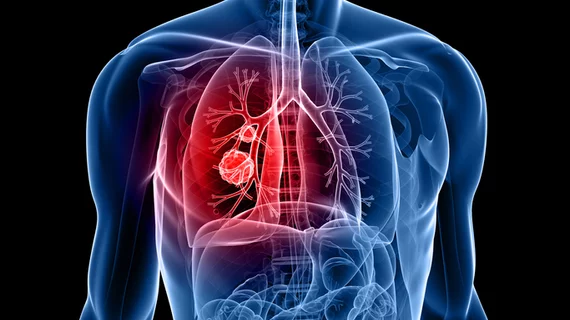RadNet and Google Health join forces to use AI for lung cancer screening
RadNet has announced a new collaboration with Google Health focused on improving lung cancer screening through the use of artificial intelligence (AI).
Aidance, the lung AI subsidiary of RadNet, will license a Google Health AI research model for lung nodule malignancy prediction. Aidence plans to develop and validate the model in the hopes of ultimately bringing it to market.
Most small lung nodules that show up on patient CT scans turn out to be benign—yet currently, confirming that a specific nodule is indeed noncancerous is a time-consuming and costly process that may require follow-up CT exams or even surgery. While increased lung screening has been shown to save lives through early detection, it can also place incredible stress on patients and their families as they wait to find out more about one or multiple lung nodules.
“One of the most exciting developments in contemporary population healthcare is the early detection of lung cancer. Unfortunately, the reality that most such nodules will be benign represents a real challenge that cries out for a technological solution,” said Raymond Osarogiagbon, chief scientist at Baptist Memorial Health Care Corporation and director of the Baptist Cancer Center’s Multidisciplinary Thoracic Oncology Program, in a Radnet announcement about the collaboration. “AI is one such solution.”
Specifically, Google Health will provide scientific expertise and their existing model, while Aidence will use deep learning methods to further develop the existing model in an effort to quickly and accurately predict malignancy of CT-detected lung nodules in a clinical setting.
“We are enthusiastic about working on a powerful deep learning model for lung nodule malignancy prediction based on the work of the Aidence and Google teams, as well as making sure that all the other requirements that contribute to the successful deployment of AI in clinical practice are in place, like clinical validation, certification and integration into the clinical workflow,” said Aidence cofounder Mark-Jan Harte.
Osarogiagbon stressed the potential of a commercially available solution to help identify cancerous cases: “The world looks forward to the rapid development and validation of software that will enhance our ability to find the many lung cancer needles in the giant haystack that is CT-detected lung nodules in today’s clinical practice,” he said.
Full announcement here.
